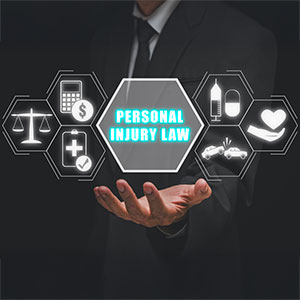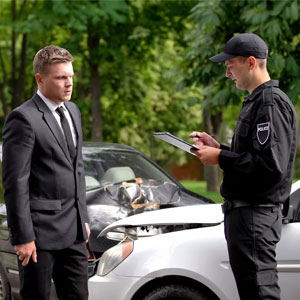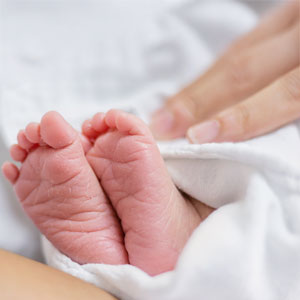Florida Guide To Daubert
Applying Daubert In Florida Trial Courts
The Florida Supreme Court adopted the Daubert standard on May 23, 2019 in In Re: Amendments to the Florida Evidence Code, SC19-107 (See Daubert v. Merrell Dow Pharmaceuticals, Inc., 509 U.S. 579 (1993)). Previously, the Florida Supreme Court (made up of a different set of justices) disapproved of Daubert in 2018.
Trial Judge Acting As “Gatekeeper”
The Daubert standard contemplates that the trial judge should act as a “gatekeeper” who independently assesses the scientific validity and reliability of the reasoning, methodology and principles underlying proffered expert evidence. See Daubert v. Merrell Dow Pharmaceuticals, Inc., 509 U.S. 579 (1993).
Under the Daubert standard, the trial judge has the power to exclude an expert’s opinion even if the expert had used reliable and accepted methodology. This can be done if the trial judge determines that the expert’s conclusion(s) were unsupported by the given methodology’s data. See General Electric Co. v. Joiner, 522 U.S. 136 (1997)(Joiner was a toxic tort case where the judge clarified that an expert’s methodology should be the focus of the inquiry of the Daubert process).
Daubert Applies To All Testimony, Both Scientific and Non-Scientific
In Kuhmo Tires Co. v. Carmichael, 526 U.S. 137 (1999)(a tire blowout case), the Daubert standard became applicable to all experts under Federal Rule of Evidence 702 and was not limited to only “scientific” experts.
In Kumho, the Court held that it was the trial judge’s responsibility gatekeeper to evaluate all “technical or other “specialized knowledge” (as specified in Rule 702). Following Kumho, the Daubert standard prohibits “pure opinion” testimony.
How To Object To Pure Opinion Testimony In Florida
Following the adoption of Daubert in In Re: Amendments to the Florida Evidence Code, SC19-107, a Daubert motion in Florida should seek to limit testimony from the experts, or any other witness, to areas that within the requirements under section 90.702, Fla. Stat.
Specifically, the objection made by a party should be to any “pure opinion” testimony in which:
- 1) the expert’s testimony is based on insufficient facts
- 2) is not based on reliable principles, or
- 3) that the witness has not applied the principles and methods reliably to the facts of the case.
There are 5 factors under Daubert to determine whether the opinion is based on reliable principles (the second factor in section 90.702):
- Whether the theory or technique in question can be and has been tested
- Whether it has been subjected to peer review and publication
- Its known or potential error rate
- The existence and maintenance of standards controlling its operation
- Whether it has attracted widespread acceptance within a relevant scientific community
Elimination Of Pure Opinion Testimony In Florida
The history and legislative analysis indicate that one of the primary objectives of requiring Daubert in Florida courts was to overrule the Florida Supreme Court’s holding in Marsh v. Valyou, 977 So. 2d 543 (Fla. 2007), and thereby the eliminate the so-called “Pure Opinion Exception” recognized in that case. Marsh v. Valyou held that if the expert relied upon experience and training, the opinion escaped Frye analysis. This essentially allowed experts to provide opinions that were supported by nothing more than their own opinions.
What Should Trial Judges Do To Ensure An Orderly Daubert Hearing Process?
In order to conduct an orderly and effective Daubert hearing, the attorneys should provide the following information to the judge:
- (a) each side should provide a list of experts whose opinions will be subject to Daubert;
- (b) for each expert, a detailed resume or CV should be provided;
- (c) for each expert, the specific subject matter about which the witness is expected to testify should be provided;
- (d) for each expert, each and every opinion the expert is expected to provide at trial about which there is a Daubert concern should be provided;
- (e) for each expert, the basis of each opinion including the facts and data relied upon should be provided;
- (f) for each opinion, the principles or methods used to arrive at those opinions should be provided.
Burden Of Proof In Daubert Motions
The burden is on the proponent of the testimony (not the challenging party) to establish its admissibility by a preponderance of proof.
If Done Correctly, Daubert Does Not Require A Trial Before The Trial
A Daubert hearing should not be a trial before the real trial begins. The reason why that is happening in some cases is because they attorneys were not forced to commit to their expert opinions before the Daubert hearing as described above.
Having been through Daubert hearings myself, an attorney should be able to commit to the opinions that an expert will give through testimony. Failure to be able to commit to the opinions from an expert means that the attorney is really unsure of what the opinions actually are. Likewise, if the trial judge senses that the attorney is not truly sure of what the expert is going to testify, then a Daubert hearing should be delayed and the attorney should be ordered to discuss the opinions that will be sought with the expert.
As Florida attorneys, we should not be afraid of Daubert as it actually allows a broader scope of expert testimony into evidence at trial than the Frye standard. However, we should also not forget what expert testimony is.
Expert testimony was always intended to be technical, skilled, or special knowledge to assist the jury to understand an issue that is part of their decision. Likewise, expert testimony was never meant to be a conduit for inadmissible evidence or improper argument. In other words, cloaking improper arguments or evidence with the authority of an expert is not acceptable in a courtroom.
Ask Us For Help With Your Florida Injury Case
We represent plaintiffs in personal injury, car accident, and medical malpractice lawsuits in Florida. If you have questions regarding these areas of law, please contact us for a free consultation with an attorney located in Lakeland, Florida. Our office is on Lakeland Hills Boulevard across from Lakeland Regional Medical Center.


